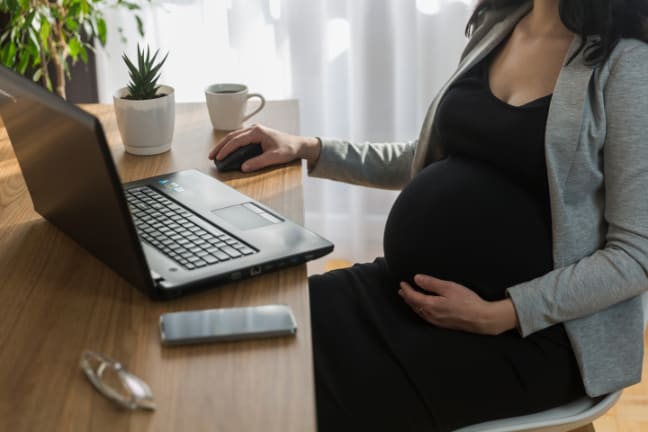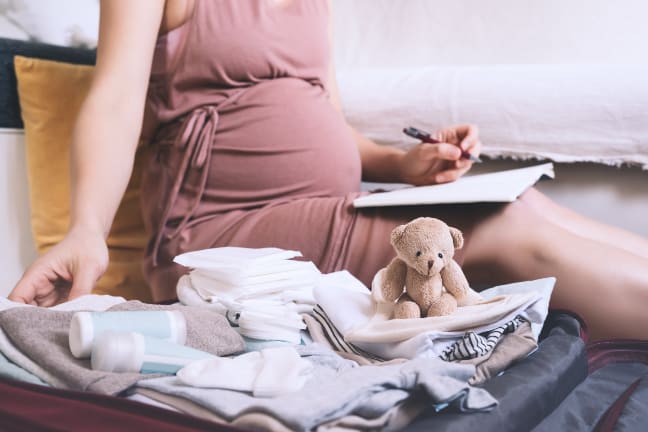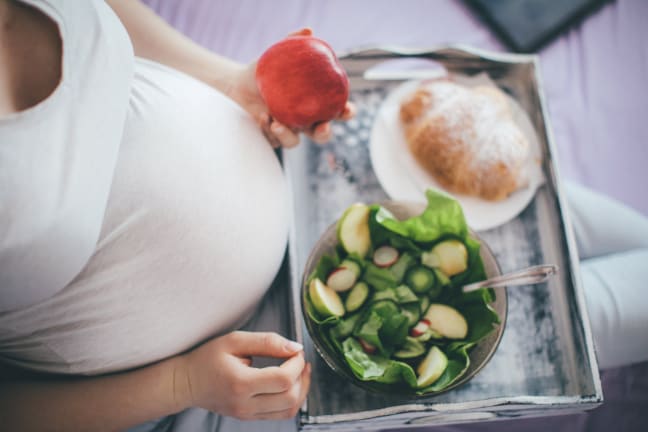Introduction
At week 28 baby’s five senses are fully developed. Feeling contractions? These may just be Braxton Hicks contractions, however, if you get them regularly it could mean you’re putting your body through too much strain. You may also find that you get out of breath these days, this is the pressure baby is putting on your diaphragm. Find out more on other changes your body may go through now you’re in trimester three and what to expect at 28 weeks pregnant.
What happens at 28 weeks pregnant?
Baby is nearly ready to breathe outside air, but for now they still ‘breathe in’ your amniotic fluid. With five senses fully developed they’ll be able to taste and smell exactly what you do. Good news, it’s not too early to introduce your favourite Thai curry.
Baby’s skin is starting to look less wrinkled as fat reserves build up underneath. Their internal thermometer is now working, and they have everything they need to regulate body temperature – good thing too, must be getting warm in mum’s tum. Once they enter the real world, they’ll be able to handle the change of temperature.
That little brain is also getting some last-minute fine-tuning – the thalamocortical connections are developing about now. The thalamus is the part of the brain that regulates consciousness and awareness – an important part of the brain’s development.
What happens to your body at 28 weeks pregnant?
Have you felt a tightening in your back or a hardening of your stomach? Panic not. They might just be Braxton Hicks contractions. It means your uterus is practising for the real thing in a few weeks.
If you feel your Braxton Hicks increasing rapidly it can mean you’re putting your body through too much strain, so take it easy. If you’re still working, have frequent short breaks when you can and leave the heavy lifting to others. Drink plenty of water as dehydration can make Braxton Hicks feel worse.
If the contractions get stronger, cause you any pain or don’t stop, you should call your midwife or visit the hospital; even if it’s just for reassurance.
You might occasionally be feeling out of breath these days. It’s the extra pressure from your ever-increasing uterus pushing against your diaphragm and restricting its range of movement. Think of it as an invisible bear hug and it might not feel so bad.
Your skin may look a little different. Some women get brown patches due to increased melanin in the blood although these usually fade away after a few months. They’re triggered by UV, so it’s wise to put on a stronger factor of sun-cream than normal.
Breast changes are also part of the package. You may notice small areola (spot-like glands) that have enlarged. These produce fluid to lubricate your nipples in preparation for breastfeeding.
What to eat at 28 weeks pregnant?
Are you a lover or hater of that famous spreadable yeast extract? Whichever camp you’re in, it’s likely baby will be on your side too, because their taste buds will be tickled by the same things yours are.
By the seventh month of your pregnancy, all of baby’s five senses are fully developed. Aromatic molecules in your food are carried to them via the amniotic fluid, along with your pleasure hormones. After birth, baby will remember these flavours. So, if you keep eating a diverse diet while you’re breastfeeding, your milk will be flavoured too. All those different foods will help baby’s sense of taste mature. Plus, breast milk cleverly provides the right type of protein at the right time to help your little one develop. Find out fascinating facts about breast milk and its composition.
What are the symptoms of 28 weeks pregnant?
Week 28 pregnancy symptoms can include a leaky bladder often referred to as urinary incontinence. This is quite common during the third trimester and is caused by weak pelvic floor muscles and the extra pressure on your bladder as your baby grows. You might leak a small amount of urine when you sneeze, cough, laugh or strain.
If you haven’t started already, it is worth doing pelvic floor exercises each day as it’s a great way to improve bladder control. It’s quite easy - you just clench the muscles as if you are trying to stop peeing and then release and repeat. It’s important to do pelvic floor exercise each day about 15 squeezes each time. This will not only help your bladder control but will also strengthen these muscles for labour as well as lower the risk of having bladder control issues post birth.
Will my baby come early?
Many women worry that their babies will be born earlier than expected. In fact, only 1 in every 13 babies are born prematurely, before the 37th week, and most babies make it through to full term.
By week 24 a pregnancy is considered viable and a baby born now, at week 28, has a very high chance of surviving.
Call your midwife or maternity unit if you have the following symptoms before 37 weeks:
-
regular contractions or tightening’s
-
period-type pains
-
a "show" – when the plug of mucus that has sealed the cervix during pregnancy comes away and out of your vagina
-
a gush or trickle of fluid from your vagina – this could be your waters breaking
-
backache that's not usual for you











